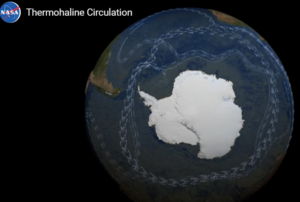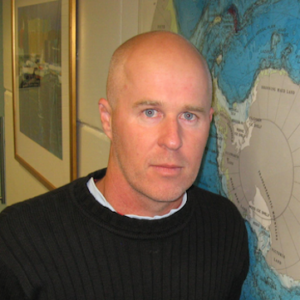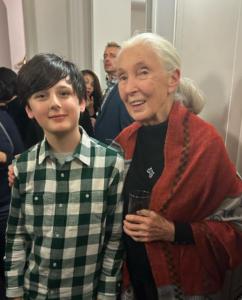Antarctic currents, We the Children, and worst car maker award. From Australia, Dr. Matthew England explains new Antarctic science that literally changes the whole world. I talk with 11-year-old Zach Fox-DeVol about his “We the Children” podcast. From Public Citizen, Erika Thi Patterson reports front-line action to clean up car making – including the surprise worst manufacturer we all thought was so green.

Listen to or download this Radio Ecoshock show in CD Quality (57 MB) or Lo-Fi (14 MB)
Listen to or download my 29 minute interview with Matthew England in CD Quality or Lo-Fi
Listen to or download my 15 minute interview with Zach Fox-DeVol in CD Quality
Listen to or download my 13 minute interview with Erika Thi Patterson in CD Quality
=============================================
Thank you to supporters who pay the bills and keep this program free for everyone, around the world. Your donation to Radio Ecoshock, large or small, can really help. Please help these independent stories going out to non-profit media on 107 radio stations and podcast subscribers. It is easy to do from this page.
– Alex
==============================================
BIG TROUBLE: ANTARCTIC OCEAN PUMP SLOWS DOWN
DR. MATTHEW ENGLAND
Deep waters around Antarctica are hiding a shock for the world. The great ocean circulation engine around the Earth is slowing down faster than we thought. This will affect global fisheries, dead zones, carbon dioxide levels, weather, and sea level rise. You need to hear this important new science. Bill McKibben says THIS, not Donald Trump, is the biggest story around.
We were told ocean systems are so vast it takes centuries if not thousands of years to change the system of ocean flows. Now we learn big changes can happen within decades, within a lifetime. Altering the ocean on this scale, including stronger layers with less upwelling nutrients, is too huge to imagine in it’s entirety. This new paper does not provide a catalog of those impacts, but the authors and other scientists are clear: a long list of fundamentals of living systems on this planet will shift.
Our guide is study co-author Professor Matthew England. He is Deputy Director of the ARC Centre for Excellence in Antarctic Science (ACEAS). That is located at the University of New South Wales in Sydney. Matthew is a veteran scientist and top level expert.

Several Radio Ecoshock guests explained weakening of the ocean current carrying heat to the Eastern Seaboard, the UK and Northern Europe. But we knew little about the other end of that chain of currents: the Antarctic overturning circulation. If that weakens, ocean circulation around the world will slow down. Surprising new science shows the Antarctic overturning is already slowing down. Matthew England warns we will not have to wait decades to see the impacts. In this interview, Matthew tells me:
“If we turn off the tap of that Arctic cold water reaching the ocean sea floor, you are going to see warming really quickly in response to that. It’s not like we need to wait decades to see a response. I agree, it is kind of surprising. If you think about the oceans at those depths, you think about them being quite slowly moving, but actually the overturning is pretty vigorous. There’s 250 trillion tons of water every year that sinks from the surface around Antarctica into the ocean’s abyss. And if you halve that, or even drop it down by 15 to 20 percent, you are going to see a temperature signature – almost in real time.”
Previously, I understood the main drivers of ocean currents were temperature differences and winds. But Matthew says starting around 2020, around now, the impacts of glacier meltwater will overtake those forces, to become the larger force determining currents. That is due to the change in salinity. Waters pouring off Antarctica and Greenland are stored rain and snow, not salty sea water. The fresher water is less dense, so it does not sink quickly to the bottom as before. That creates layers in the ocean, called “stratification”.
For many years, scientists predicted the ocean would become more stratified as global warming continues. The impacts are many. For example, you may recall recently we talked with Dr. Keith Moore from University of California Irvine. Keith said with stratification, fewer nutrients would upwell from the deep sea toward the shallower waters where vital plankton grow. As plankton as the base of the marine food chain, that means less food in the sea, right up to the fisheries feeding protein to more than a billion humans – not to mention all the fish and marine mammals.
Here is what Keith Moore said in a University of California Irvine Press Release:
“Green, downward lines denote dead and dying organisms sinking from surface waters in the world’s oceans. As they decompose, the animals’ nutrients are released at depth, eventually to return to the surface via ocean circulation. A recently published Nature Climate Change study by UCI Earth system scientists shows how global warming will slow deep circulation, trapping nutrients near the ocean floor. Marine ecosystems will become increasingly nutrient-starved over time. Slowing deep circulation also reduces uptake of carbon dioxide from the atmosphere, resulting in the extension and intensification of hot climate conditions.”
“A disruption in circulation would reduce ocean uptake of carbon dioxide from the atmosphere, intensifying and extending the hot climate conditions. Over time the nutrients that support marine ecosystems would increasingly become trapped in the deep ocean, leading to declining global-ocean biological productivity.”
OCEAN LIFE WOULD NOT DIE
Matthew England says plankton and other shallow sea life would not die off, because there are waves and winds to circulate some nutrients. But ocean life could be greatly reduced without the contribution from the deep. The consolation, such as it is: all the carbon captured by plankton that drops to the sea bottom would stay there, well sequestrated. But along with that, with less plankton growth, less carbon would be captured as we go along. That means more and more of the greenhouse gases we emit will stay in the atmosphere. In that way too, weakening ocean circulation adds to our global warming impacts.
Another surprise: we thought the deep ocean would not warm for centuries. Recent science, including repeated ship measurements, show the low layer of the ocean, below 4,000 meters or about two and half miles down – it is warming.
GETTING DISTRACTED BY DISASTERS
In the interview, Dr. England is worried that as heavier impacts of global warming strike civilization, governments will spend more precious resources on adaptation, resilience, and just trying to rebuild than actually addressing the cause: slashing greenhouse gas emissions. It’s a good point.
Also, an earlier American study showed a change in overturning could shift rainfall in the tropics – away from the Southern Hemisphere. That might speed up drying of the great Amazon rainforest, which would release it’s massive carbon stores (in trees) as it converts to grasslands. The Amazon would soak up less carbon from the atmosphere, so it becomes a feedback loop adding to warming. There is also concern that rainfall in Africa could be affected by changes in the Amazon – yet another knock-on effect stimulated by ocean circulation weakening in Antarctica.
ONE THING LEADS TO ANOTHER
Matthew says reliable measurements show we are not about to see a slowdown – we are actually in it now, part way through it. The circulation change also tends to keep warmer waters closer to the surface. They run under the bottoms of massive ice shelves protruding out into the ocean, more or less floating. The ice shelf melt will not directly affect sea level rise, but it has already been shown that ice shelves act like a cork in a bottle, a buttress, slowing down the flow of glaciers from Antarctica into the sea. As the ice shelves break off and melt, more and more glacial fresh-water reaches the sea. This further slows down the overturning circulation and directly adds to sea level rise around the world.
Dr. England says it is possible we may be a meter, 3 feet, of sea level rise in the next 80 years. Last week I covered new science that shows that first meter of sea level rise is the most devastating for hundreds of millions of people who would be flooded out, and for the global food supply.
Darkly, Matthew suggests Antarctic overturning could stop, completely stop, leaving planet Earth with a stagnant sea system. I vaguely recall one of our guests saying deep-time records in shells and rocks do show the North Atlantic Meridional Overturning Circulation (AMOC) has stopped in the distant past. If that happens, the Eastern U.S. and Canada get colder, but the UK and Northern Europe get much colder. Remember northern European cities are about the same latitude as mid to North Canada. Without that warming sea current – the Gulf Stream – temperatures seen in Edmonton Alberta would be found most winters in Berlin and even Rome. We are talking down to 40 degrees below zero, in both Celsius and Fahrenheit.
All is not yet lost, England says. This Antarctic circulation weakening is not doomed to progress to actual collapse of Antarctic overturning. How far and fast this change goes still depends on the emissions we add to the atmosphere.
If this circulation system could tip within three decades, most of my listeners will be alive as those changes take place. For me, this interview and this paper are the most important so far in 2023. Scientists hold measurable mirrors to capture reality and the reflection seems damming. Lookout on the Titanic of fossil-powered civilization have spotted the iceberg, literally the ice, that could sink it all. A powerful change, hidden under the surface, is already at play. This is horror news. Emergency action is needed.
RESOURCES TO FIND OUT MORE
The new paper we discuss is: the new paper: “Abyssal ocean overturning slowdown and warming driven by Antarctic meltwater”. Here is Matthew England’s Twitter thread on this paper. The Academy of Science has released a short video explainer about this new work. See an animation of Southern Overturning Circulation here.
As usual, you can read a good article about this new Antarctic science in the Guardian newspaper here. Canadian climate scientist Paul Beckwith has a YouTube video about this paper here.
MY PREVIOUS RADIO ECOSHOCK INTERVIEW WITH MATTHEW ENGLAND
On Radio Ecoshock in 2011
I wrote in that blog:
“Most of the excess heat from the greenhouse effect is going into the oceans. As you know, water takes much longer than air to heat, but then water holds that heat longer. Dr. England expresses the worry that humans have not yet felt the real impact of the heat created by the greenhouse gases – that will continue to warm the oceans, with unpredictable results. And these oceans, once warmed, may determine the climate for centuries to come.”
That aged well.
============================
WE THE CHILDREN
Move over Greta Thunberg, and move on Alex Smith. There is a great new climate podcaster on the scene. From Los Angeles California he is eleven-year-old Zach Fox-DeVol. Zach is co-writer and host of the “We the Children” podcast. He has a production team including a media-savvy Mom Katy Fox plus his second grade teacher Clare Marder. I tuned in with a kind of “humor the kids” attitude and was blown away. I learned a lot from just one podcast. Seriously
During the pandemic, then 10-year-old Zach Fox-DeVol began a podcast as a summer writing project. It was called “Rule of the Bark”. Zach explained dog training – from the viewpoint of a dog (so it is sort of human training…). In December 2021, Zach upped his game and now Zach podcasts about the climate crisis in “We The Children”.

THE KIDS ALREADY KNOW. HOW CAN THEY TELL US?
Parents used to dread talking to their kids about how bodies really work. They called it “the conversation”. But these days it works the other way around: in a lot of households, kids are concerned about what to say to parents about climate change. If a young person thinks their parents might react badly, how should they approach it? Zach has some advice in our interview.
I think kids have more power than they know to change adults. Zach’s podcast guest author Heather White got more active when her daughter shared worries about the future, especially climate. Kids can change adults, but some parents feel accused or challenged if their children talk climate.
Now and then, kids voices manage to penetrate adult media. At the Earth Summit in Brazil in 1992, the most famous voice for youth was Severn Cullis Suzuki. She founded the Environmental Children’s Organization at age nine. See her viral video of that 1992 U.N. speech “The girl who silenced the world for 5 minutes”
More recently we have Greta Thunberg, founder of the Fridays for Climate school strikes. When asked what her generation would do about climate threats, Greta got a little angry. She said: ““We should not be the ones having to do this. It should be up to adults and people in power, in those who have caused this problem in the first place.”
In our interview, Zach mentions NotPla They replace plastic packaging with seaweed. Zach talks about “action steps” – small changes in every day life, like the compost bin for the garden, reducing food waste. Buy things sustainably with less plastic. Fast fashion is another bad thing he says, buy things you will use and get it re-used or recycled.

Zach Fox-DeVol with Jane Goodall in London
COMING UP IN THE “WE THE CHILDREN” PODCAST
In an upcoming podcast, Zach interviews glaciologist Dr. Heïdi Sevestre Glaciologist. She spends half her year in the Arctic, is Svalbard. Also coming up: Sheila Morovati · Founder & President of Habits of Waste.
In a way, kids in developing countries have similar positions to a billion people in developing countries. Kids did not create a polluting system that could ruin the natural world. Kids benefit less from fossil burning than adults, and have less power to change things. You need to become a consumer with a spending budget and a credit card to be part of the real climate killing game. I will be listening to Zach’s upcoming podcasts. Maybe you should too.
===============================================
MAKING CARS GREENER
ERIKA THI PATTERSON OF PUBLIC CITIZEN
Don’t you hate it when your green heroes go to the dark side? I did not say “Elon Musk”. No, this is about the one-time good-guys of the car industry. Now they are fighting to keep making polluting cars and trucks. If we name the worst of the bunch, you are in for a shock.
This really matters. The U.S. Environmental Protection agency says transportation emissions are the single largest source of greenhouse gases in the United States. And digging behind the scenes, just making cars hurts people and damages the environment. It could be better.
Our guest is Erika Thi Patterson from the NGO Public Citizen. Erika has a Masters Degree in Urban and Regional Planning from UCLA. She has led a number of remarkable campaigns for social justice, in California and nationally. She was the Climate and Environmental Justice Campaign Director, for the Action Center on Race & the Economy. Now Erika is the Auto Supply Chain Campaign Director for Public Citizen.
TOYOTA RACES TO THE BOTTOM
My wife and I bought the most fuel efficient car on the market, that we could afford. Our used 2007 Toyota Yaris really gets 45 miles to the gallon, which is about 5 liters per 100 kilometers. We love Toyota. So it was very disturbing last fall to hear the Toyota CEO Akio Toyoda dismiss a switch to all electric cars. He committed Toyota to a long future producing global warming machines. The number one seller of all electric vehicles in 2021 was… General Motors. Toyota was at the bottom of the list, #10.
FULL SCORECARDS FOR EACH COMPANY: https://leadthecharge.org/scorecards/
TAKE ACTION!
Send emails to Toyota and 17 other automakers demanding that they transform their supply chains to be fossil free, equitable, and sustainable.
Amplify this Tweet about a recent letter from Public Citizen and 54 organizations across 26 countries to Toyota’s new CEO demanding the company phase out combustion engine cars, end anti-climate lobbying, and build fossil-free, equitable, and responsible supply chains.
https://twitter.com/east_p_t/status/1641484991715586048
TOYOTA’S HYDROGEN CAR HYPE IS DANGEROUS
A new Toyota CEO was just appointed, the younger Koji Sato. But he too promises to keep making gas burning cars well into the next decade – climate be damned. Koji Sato claims hydrogen cars will be the answer. This is totally unreal, a distraction that will damage the planet. Toyota currently makes one hydrogen car. The Mirai can only find a fuel station in California. The company sold only 2094 of those hydrogen cars in 2022.
To make this hydrogen hype reality, an entirely new class of filling stations would have to be built all over the world It’s a sad mistake to think that can and will be done before 2030, when the United Nations says greenhouse gas emissions need to be HALF what they are today.
Plus hydrogen is not a fuel found in the ground. According to the U.S. government, 95% of all hydrogen is made by burning natural gas, coal, or biomass. So hydrogen is not so much an energy source and a way of transferring energy. Fossil fuels are still hidden in the mix!
TOYOTA RANKED LAST FOR GREEN
Sierra Club and Greenpeace ranked Toyota at the bottom of its auto-industry decarbonization rankings the past two years.
Global EV sales double; Nissan and Honda drop in Greenpeace Auto Ranking
Find out more from Erika’s blog here, and here.
Erika serves up more bad news for Toyota fans: (from her blog at Public Citizen)
“Toyota went all-in on hybrids and now lags far behind other automakers–so it has opposed EV requirements in the U.S., U.K., India, and more.
Toyota lobbied to weaken greenhouse gas standards for vehicles. It even joined a Trump-era lawsuit to strip the state of California of its ability to set its own vehicle emissions standards–a position the company only walked back last month.
Toyota cheated on emissions testing and was fined a record $180 million last year by the EPA for violating clean air regulations, the largest civil penalty ever for a breach of federal emissions-reporting requirements.
Toyota debuted its only electric vehicle in the U.S. in 2022, but promptly recalled it because the wheels were falling off.
In early 2022, Toyota threatened to cease manufacturing cars in the U.K. if the country wouldn’t water down its strong clean car rules, which are slated to end diesel sales by 2030 and hybrid sales by 2035. The auto giant backed off after a newspaper exposed the threat.”
ONE MORE THING:
Let’s get real. All-electric vehicles for everyone is still a planet-killing idea. As Public Citizen, Greenpeace and others say, the whole car-making supply chain is loaded with embedded fossil fuels. Where do you think all those plastic parts come from? (Petroleum). What is used to mine the lithium for batteries, and make the steel for car frames – coal and oil. We have not even begun to talk about the damage to aboriginal people, loss of habitat for plants and animals, toxic materials left behind – you can’t make hundreds of millions of new cars – even to replace the old fleet – without heading toward 3 degrees warming and above.
The other alternative, if we care about our kids, is to travel far less, consume way less, and use public transit or bicycles. I suppose a vibrant livable planet might be worth a few sacrifices…
Thank you for supporting Radio Ecoshock. Your donations alone keep this going. Thank you for tuning in to these difficult subjects, and caring about our world. Don’t forget to send your letter to Toyota, with this easy link:
Thanks for having your guests. Great speakers. But the difficult questions you ask cannot be answered completely and honestly. It would take too much time and also expose the limits of each persons abilities and cognition. The last guest especially has a challenging time in examining the futility of getting producers of vehicles to be responsible. It seems that anyone who takes the long way, the way of getting the speed of machines out of the processes of production will be superseded by those who will take shortcuts. Hand made, human or animal powered actions will never provide for the excesses that the dominant culture demands. I believe the system at hand must break down i.e. all the shipping, mining etc. and the results will be chaos and the end of life as we have become accustomed. I expect most of us will not live to the end of our natural life.
https://m.timesofindia.com/city/navi-mumbai/11-attendees-of-maharashtra-bhushan-award-ceremony-die-of-heat-related-health-issues-in-navi-mumbais-kharghar/articleshow/99539090.cms
Isn’t this a horrible news. And indeed it’s depressing.